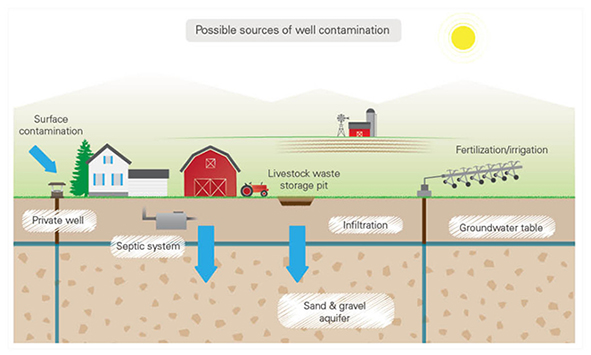Do you or someone you know have patches of dry, rough, reddened, intensely itchy skin? These are symptoms of Eczema. A chronic and often debilitating condition that affects nearly 31 million Americans. Scratching can lead to open sores that bleed or weep, and skin infections. Julie Van Onselen, an independent dermatology nurse asserts that “Eczema can affect people’s quality of life due to many factors including sleep loss, poor concentration and psychological distress.”
Managing Eczema
Since Eczema is a long-term, chronic disease managing it is essential. Eczema can be triggered by stress and allergens, or irritants (soaps, detergents and rough or woolly clothing). Lotions and creams are recommended to keep the skin moist, usually while skin is damp to help retain moisture.
The Effect of Hard Water on Eczema
Showering or bathing in hard water aggravates Eczema. The minerals in hard water bind with soaps and shampoos forming a drying soap scum that clings to your skin and scalp. Since soaps and shampoos don’t lather well in hard water people increase the amount they use compounding the problem. More soap scum equals worsening of dry itchy skin. A layer of drying soap scum on the skin prevents lotions and creams from moisturizing and protecting the skin appropriately.
Hard water soap scum clings to clothing and linens making them rough and scratchy. Constant contact with these surfaces causes chafing, rubbing and further skin irritation. In conclusion, hard water means misery.
Don’t Worry, There’s Good News!
There’s an easy solution to hard water and its painful effects! All you need is a proper Water Softener to remove hard minerals from your water. Drying soap scum on your skin or scalp, and irritating fabrics will be a thing of the past. Soft Water is gentle to the skin, leaves pores unclogged and allows moisturizes to be absorbed, which can go a long way in helping relieve eczema.
In most cases Soft Water has been shown to be helpful in preventing and controlling eczema flare ups.
A study by Professor Williams of Nottingham University in 1998, found eczema is up to 44% more common in primary school children living in hard water areas, than those who live in areas with soft water. Similar studies carried out in Spain and Japan found higher incidence of eczema in areas supplied with hard water rather than natural soft water.
Gainesville’s University of Florida Communications published a Health Podcast (goo.gl/Mbptxq) where they share the results of a study performed by scientists at King’s College in London. The study found babies, as young as 3 months, in homes with hard water had a higher level of calcium carbonate (a mineral found in Hard Water) and were more likely to develop eczema. The risk increased by a staggering 87%!!
If you or a loved one suffers from Eczema or dry skin, hard water may be part of the reason. Contact us and one of our highly trained Water Specialist will answer your questions, test your water and share with you the Water Treatment solution that is right for you!
You can reach us at: Gainesville 352-372-2707 or Ocala 352-369-1707 .
You can also schedule your FREE Water Analysis today by filling out this form: https://bestwatersolutions.comfree-water-analysis/

